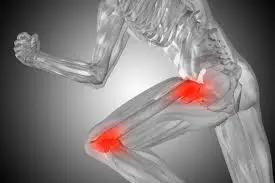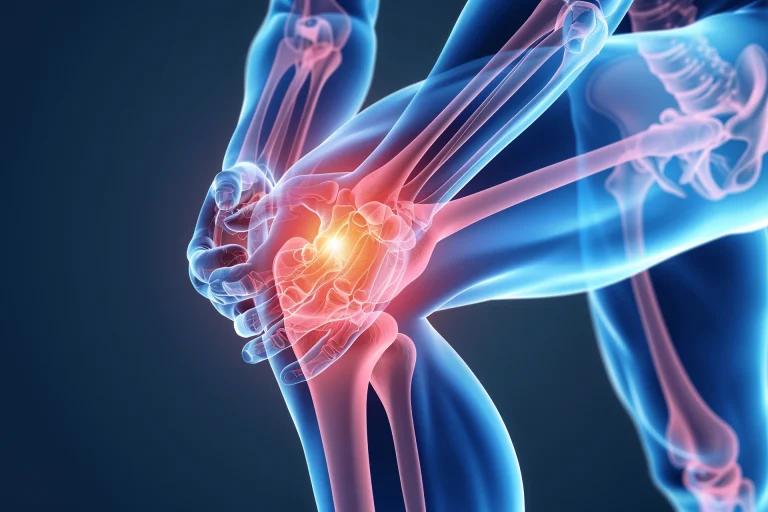Collagen has long been thought of as a miracle supplement for skin health to stronger bones. When it comes to joint health, the claims around collagen powder can seem almost too good to be true. Can this popular supplement make a noticeable difference in reducing joint pain and protecting cartilage? Or is it just another wellness fad?
In this comprehensive article, we’ll dive deep into the science behind collagen and its potential impacts on joint function. We’ll explore the different types of collagen, how they work, and what the latest research says about their efficacy for osteoarthritis, rheumatoid arthritis, and other joint-related conditions. By the end, you’ll have a clear understanding of whether collagen powder is worth adding to your joint health regimen.
What is collagen?
Collagen is the most abundant protein in the human body, making up approximately 30% of our total protein content. This structural molecule serves as the primary component of connective tissues like skin, bones, tendons, ligaments, and – most importantly for joint health – cartilage.
There are actually 28 different types of collagen that have been identified by scientists. However, the four or five most common dietary supplements are:
- Type I Collagen: Found in skin, teeth, bones, tendons, and ligaments. This is the most prevalent type in the body
- Type II Collagen: Makes up around 90% of the collagen in cartilage
- Type III Collagen: Present in skin, muscles, and blood vessels
- Type IV Collagen: A key part of the thin layer of tissue supporting cells in organs like the kidneys, lungs, and eyes
- Type V Collagen: Found in hair and cell surfaces
The unique molecular structure of collagen, with its triple-helix formation, gives it incredible tensile strength and flexibility – properties that are critical for the proper functioning of our joints. As we age, our natural collagen production begins to decline, leading to a breakdown of these connective tissues and the onset of joint-related issues like osteoarthritis.
Collagen supplementation: Two main types
When it comes to supplementing with collagen for joint health, there are two primary forms to consider:
Hydrolyzed collagen
Also known as collagen peptides or collagen hydrolysate, this type of collagen has been broken down into smaller, more easily absorbed amino acid chains through a process called hydrolysis. The hydrolysis step makes hydrolyzed collagen more bioavailable, meaning the body can more readily utilise the collagen peptides.
Hydrolyzed collagen supplements are typically derived from animal sources like bovine hides, porcine skins, or marine fish scales. They are available in powder, capsule, or liquid forms that can be easily incorporated into foods, beverages, or taken on their own.
Undenatured type II collagen
In contrast to hydrolyzed collagen, undenatured type II collagen maintains the original triple-helix molecular structure of the collagen molecule. This form is almost exclusively sourced from chicken cartilage and is believed to work through a unique immune-mediated mechanism.
The “undenatured” label means the collagen has not been exposed to high heat, acids, or enzymes that would break down or alter its natural structure. This preservation of the collagen’s epitopes (antigenic sites) is thought to be key to its joint health benefits.
Research on collagen for joint health
With two distinct types of collagen, it’s not surprising that the clinical research on collagen supplements for joint health has produced somewhat mixed results. Let’s take a closer look at the evidence for each type:
Hydrolyzed collagen
The body of research on hydrolyzed collagen for joint health is generally more robust and positive compared to undenatured type II collagen. Several robust studies have found benefits:
- A 2019 systematic review and meta-analysis of 19 studies involving over 1,000 participants found that collagen peptide supplements significantly improved joint pain, stiffness, and physical function in those with osteoarthritis
- A 2017 randomised placebo-controlled study gave 2.5-10 grams per day of collagen peptides to adults with knee osteoarthritis for 6 months. The collagen group experienced notable reductions in joint pain and improved cartilage quality compared to placebo
- Another randomised controlled trial (RCT) from 2016 found that 10 grams per day of collagen peptides improved joint comfort and function in athletes with activity-related joint pain
The effective dosage for hydrolyzed collagen seems to fall in the range of 2.5-10 grams per day, with higher amounts potentially providing greater benefits.
Undenatured type II collagen
The research on undenatured type II collagen for joint health, while promising, is a bit more mixed. Some key findings include:
- A 2009 randomised controlled trial gave 40 mg per day of undenatured type II collagen to people with knee osteoarthritis. After 6 months, the collagen group experienced significant improvements in pain, stiffness, and physical function compared to glucosamine/chondroitin and placebo
- Another RCT from 2016 found no significant differences in joint symptoms between 40 mg per day of undenatured type II collagen and placebo in individuals with knee osteoarthritis
- A 2018 observational study reported that a combination of 40 mg undenatured type II collagen and a Boswellia extract led to reductions in pain and improved function in 90 days
The effective dosage for undenatured type II collagen appears to be around 40 mg per day, though the research is less consistent compared to hydrolyzed collagen
Collagen for other joint conditions
While the bulk of research on collagen supplements has focused on the treatment of osteoarthritis, there is some evidence that they may also benefit other joint-related conditions:
Rheumatoid arthritis
The immune-modulating effects of undenatured type II collagen have led researchers to investigate its potential for rheumatoid arthritis as well. However, the results have been mixed, with some small studies showing benefits and others finding no significant improvements.
Bone health
Since collagen makes up a large portion of bone structure, collagen supplements may help support bone mineral density and reduce the risk of osteoporosis. A 2018 clinical trial found that postmenopausal women who took 5 grams of collagen peptides daily for a year experienced increases in bone mineral density in the spine and femur compared to placebo.
Athletic performance & recovery
Several studies have looked at the effects of collagen supplements on joint health and function in athletes. The research suggests collagen peptides may help reduce exercise-induced joint pain, improve joint flexibility, and support faster recovery from joint injuries.
Choosing the right collagen supplement
With so many collagen products on the market, it can be challenging to know which one to choose. Here are some tips to help you select the best collagen supplement for your joint health needs:
Consider the collagen type
If your primary goal is to support osteoarthritis or other inflammatory joint conditions, undenatured type II collagen may be the best choice based on its unique immune-modulating mechanism. For more general joint health and flexibility, hydrolyzed collagen (types I, II, III) could be a good option.
Look for quality ingredients
When purchasing a collagen supplement, make sure the product is third-party tested for purity and potency. Avoid brands that use fillers, artificial ingredients, or low-quality collagen sources.
Pay attention to dosage
The research suggests effective doses of 40 mg per day for undenatured type II collagen and 2.5-10 grams per day for hydrolyzed collagen. Start at the lower end of the range and gradually increase if needed.
Be patient and consistent
It can take 4-12 weeks to start noticing the joint health benefits of collagen supplements. Stick with it and give the product time to work. Consistency is key to seeing long-term improvements.
Potential side effects and precautions
The good news is that collagen supplements are generally well-tolerated, with few reported side effects. However, there are a few important considerations:
- Allergic reactions: Those with known allergies to the animal source of the collagen (e.g. bovine, porcine, marine) should avoid that type of supplement
- Digestive issues: Some people may experience mild gastrointestinal discomfort, such as bloating or diarrhoea when first starting collagen supplements. This usually subsides with continued use
- Interactions with medications: Collagen may interact with certain blood thinners, diabetes medications, and corticosteroids. Consult your healthcare provider before taking collagen if you are on any prescription drugs
As with any supplement, it’s always wise to discuss collagen use with your doctor, especially if you have an underlying health condition or are taking other medications.
Is collagen powder worth it for joint health?
After reviewing the available research, it appears that collagen supplements – particularly hydrolyzed collagen – can offer meaningful benefits for joint health and function. The evidence is strongest for reducing pain and improving symptoms of osteoarthritis, with some promising findings for other joint-related conditions as well.
That said, collagen is not a magic bullet. It’s important to have realistic expectations and understand that it may take several weeks or months of consistent use to experience noticeable improvements. Collagen supplements should be viewed as just one part of a comprehensive joint health regimen that also includes exercise and weight management.
Ultimately, the decision to take collagen supplements for your joint health is a personal one. But given the relatively low risk and potential upsides, it may be worth discussing with your healthcare provider to see if it could be a helpful addition to your wellness routine.
Sources
- Collagen Supplementation for Joint Health: The Link between Composition and Scientific Knowledge – PMC
- Are Collagen Supplements Helpful for Arthritis? – Arthritis Foundation
- Do Collagen Peptides Actually Work?
Medical Disclaimer
NowPatient has taken all reasonable steps to ensure that all material is factually accurate, complete, and current. However, the knowledge and experience of a qualified healthcare professional should always be sought after instead of using the information on this page. Before taking any drug, you should always speak to your doctor or another qualified healthcare provider.
The information provided here about medications is subject to change and is not meant to include all uses, precautions, warnings, directions, drug interactions, allergic reactions, or negative effects. The absence of warnings or other information for a particular medication does not imply that the medication or medication combination is appropriate for all patients or for all possible purposes.










